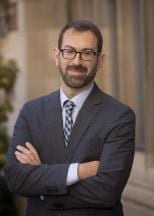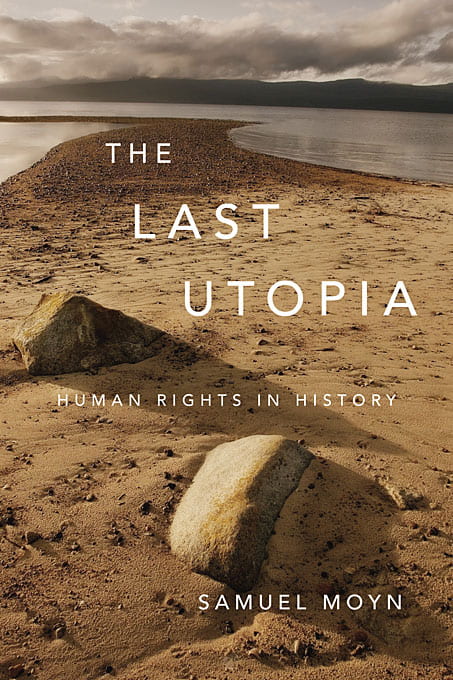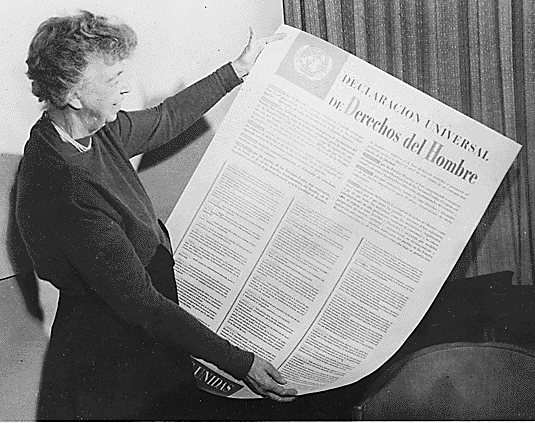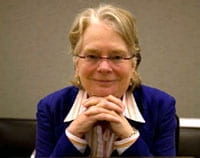By guest contributor Pranav Kumar Jain

Professor Samuel Moyn (Yale University)
Since the publication of The Last Utopia: Human Rights in History, Professor Samuel Moyn has emerged as one of the most prominent voices in the field of human rights studies and modern intellectual history. I recently had a chance to interview him about his early career and his views on human rights and recent developments in the field of history.
Moyn was educated at Washington University in St. Louis, where he studied history and French literature. In St. Louis, he fell under the influence of Gerald Izenberg, who nurtured his interest in modern French intellectual history. After college, he proceeded to Berkeley to pursue his doctorate under the supervision of Martin Jay. However, unexcited at the prospect of becoming a professional historian, he left graduate school after taking his orals and enrolled at Harvard Law School. After a year in law school, he decided that he did want to finish his Ph.D. after all. He switched the subject of his dissertation to a topic that could be done on the basis of materials available in American libraries. Drawing upon an earlier seminar paper, he decided to write about the interwar moral philosophy of Emmanuel Levinas. After graduating from Berkeley and Harvard in 2000-01, he joined Columbia University as an assistant professor in history.
Though he had never written about human rights before, he had become interested in the subject in law school and during his work in the White House at the time of the Kosovo bombings. At Columbia, he decided to pursue his interest in human rights further and began to teach a course called “Historical Origins of Human Rights.” The conversations in this class were complemented by those with two newly arrived faculty members, Mark Mazower and Susan Pedersen, both of whom were then working on the international history of the twentieth century. In 2008, Moyn decided that it was finally time to write about human rights.

Samuel Moyn, The Last Utopia: Human Rights in History (Cambridge: Harvard University Press, 2012)
In The Last Utopia, Moyn’s aim was to contest the theories about the long-term origins of human rights. His key argument was that it was only in the 1970s that the concept of human rights crystallized as a global language of justice. In arguing thus, he sharply distinguished himself from the historian Lynn Hunt who had suggested that the concept of human rights stretched all the way back to the French Revolution. Before Hunt published her book on human rights, Moyn told me, his class had shared some of her emphasis. Both scholars, for example, were influenced by Thomas Laqueur’s account of the origins of humanitarianism, which focused on the upsurge of sympathy in the eighteenth century. Laqueur’s argument, however, had not even mentioned human rights. Hunt’s genius (or mistake?), Moyn believes, was to make that connection.
Moyn, however, is not the only historian to see the 1970s as a turning point. In his Age of Fracture (2012), intellectual historian Daniel Rodgers has made a similar argument about how the American postwar consensus came under increasing pressure and finally shattered in the 70s. But there are some important differences. As Moyn explained to me, Rodgers’s argument is more about the disappearance of alternatives, whereas his is more concerned with how human rights survived that difficult moment. Furthermore, Rodgers’s focus on the American case makes his argument unique because, in comparison with transatlantic cases, the American tradition does not have a socialist starting point. Both Moyn and Rodgers, however, have been criticized for failing to take neoliberalism into account. Moyn says that he has tried to address this in his forthcoming book Not Enough: Human Rights in an Unequal World.
Some have come to see Moyn’s book as mostly about President Jimmy Carter’s contributions to the human rights revolution. Moyn himself, however, thinks that the book is ultimately about the French Revolution and its abandonment in modern history for an individualistic ethics of rights, including the Levinasian ethics which he once studied. In Moyn’s view, human rights are a part of this “ethical turn.” While he was working on the book, Moyn’s own thinking underwent a significant revolution. He began to explore the place of decolonization in the story he was trying to tell. Decolonization was not something he had thought about very much before but, as arguably one of the biggest events of the twentieth century, it seemed indispensable to the human rights revolution. In the book, he ended up making the very controversial argument that human rights largely emerged as the response of westerners to decolonization. Since they had now lost the interventionist tool of empire, human rights became a new universalism that would allow them to think about, care about, and perhaps intervene in places they had once ruled directly.
Though widely acclaimed, Moyn’s thesis has been challenged on a number of fronts. For one thing, Moyn himself believes that the argument of the book is problematic because it globalizes a story that it mostly about French intellectuals in the 1970s. Then there are critics such as Stefan-Ludwig Hoffmann, a German historian at UC Berkeley, who have suggested, in Moyn’s words, that “Sam was right in dismissing all prior history. He just didn’t dismiss the 70s and 80s.” Moyn says that he finds Hoffmann’s arguments compelling and that, if we think of human rights primarily as a political program, the 90s do deserve the lion’s share of attention. After all, Moyn’s own interest in the politics of human rights emerged during the 90s.

Eleanor Roosevelt with a Spanish-language copy of the Universal Declaration of Human Rights
Perhaps one of Moyn’s most controversial arguments is that the field of the history of human rights no longer has anything new to say. Most of the questions about the emergence of the human rights movements and the role of international institutions have already been answered. Given the major debate provoked by his own work, I am skeptical that this is indeed the case. Plus, there are a number of areas which need further research. For instance, we need to better understand the connections between signature events such as the adoption of the Universal Declaration of Human Rights, and the story that Moyn tells about the 1970s. But I think Moyn made a compelling point when he suggested to me that we cannot continue to constantly look for the origins of human rights. In doing so, we often run the risk of anachronism and misinterpretation. For instance, some scholars have tried to tie human rights back to early modern natural law. However, as Moyn put it, “what’s lost when you interpret early modern natural law as fundamentally a rights project is that it was actually a duties project.”
Moyn is ambivalent about recent developments in the study and practice of history in general. He thinks that the rise of global and transnational history is a welcome development because, ultimately, there is no reason for methodological nationalism to prevail. However, in his view, this has had a somewhat adverse effect on graduate training. When he went to grad school, he took courses that focused on national historiographical canons and many of the readings were in the original language. With the rise of global history, it is not clear that such courses can be taught anymore. For instance, no teacher could demand that all the students know the same languages. Consequently, Moyn says, “most of what historians were doing for most of modern history is being lost.” This is certainly an interesting point and it begs the question of how graduate programs can train their students to strike a balance between the wide perspectives of global history and the deep immersion of a more national approach.
Otherwise, however, in contrast with many of his fellow scholars, Moyn is surprisingly upbeat about the current state and future of the historical profession. He thinks that we are living in a golden age of historiography with many impressive historians producing outstanding works. There is certainly more scope for history to be more relevant to the public. But historians engaging with the public shouldn’t do so in crass ways, such as suggesting that there is a definitive relevance of history to public policy. History does not have to change radically. It can simply continue to build upon its existing strengths.

Professor Lynn Hunt (UCLA)
In the face of Lynn Hunt’s recent judgment that the field of “history is in crisis and not just one of university budgets,” this is a somewhat puzzling conclusion. However, it is one that I happen to agree with. Those who suggest that historians should engage with policy makers certainly have a point. However, instead of emphasizing the uniqueness of history, their arguments devolve to what historians can do better than economists and political scientists. In the process, they often lose sight of the fact that, more than anything, historians are storytellers. History rightly belongs in the humanities rather than the social sciences. It is only in telling stories that inspire and excite the public’s imagination that historians can regain the respect that many think they have lost in the public eye.
Pranav Kumar Jain is a doctoral student in early modern history at Yale University.



1 Pingback